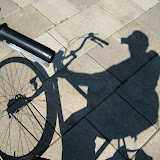Erasmus University Rotterdam, 23 August 2008
conference photo albums, click on thumbnails to see album:


- the road to Rotterdam ----------------- presentation snaps -


 "... the Open Air Film Festival Amsterdam will take place from August 7 till August 23 on various locations. Every day you can enjoy the best films that haven’t been screened in the Dutch cinemas under a beautiful starry sky. We have a superb film programme, interesting art projects, a cosy bar, comfortable beach-chairs and bon fires. Free entry for everyone!" [see more at the pluk de nacht website]
"... the Open Air Film Festival Amsterdam will take place from August 7 till August 23 on various locations. Every day you can enjoy the best films that haven’t been screened in the Dutch cinemas under a beautiful starry sky. We have a superb film programme, interesting art projects, a cosy bar, comfortable beach-chairs and bon fires. Free entry for everyone!" [see more at the pluk de nacht website]

 Saturday 9 August is our much-anticipated meeting with Professor Mieke Bal. Here are the details.
Saturday 9 August is our much-anticipated meeting with Professor Mieke Bal. Here are the details. to a social gathering in downtown Seattle. It will be a pot-luck bbq in my swanky condo lounge.
to a social gathering in downtown Seattle. It will be a pot-luck bbq in my swanky condo lounge.
 in his new book, The Emergence of Genetic Rationality, our guest on wednesday, Philip Thurtle, maps the ways in which genetic information has been organized over the years. he argues that modes of organization and processing of genetic information have shaped how we view ourselves. "In a very real sense, the social need and the technical capacity to articulate a concept of heredity reliant upon heritable traits emerged from the circuits of recordkeeping, clerical divisions of labor, data analysis, new forms of institutional memory, and rationalized communication and transportation practices of the era—what we today might call “information processing.” "
in his new book, The Emergence of Genetic Rationality, our guest on wednesday, Philip Thurtle, maps the ways in which genetic information has been organized over the years. he argues that modes of organization and processing of genetic information have shaped how we view ourselves. "In a very real sense, the social need and the technical capacity to articulate a concept of heredity reliant upon heritable traits emerged from the circuits of recordkeeping, clerical divisions of labor, data analysis, new forms of institutional memory, and rationalized communication and transportation practices of the era—what we today might call “information processing.” " Theme: the Westergasfabriek Park (WGF) wants to develop into a park of the 21st century, in which new media, new forms of representation and identity, novel forms of social networks, and technologies merge to create and sustain new forms of cultural expression and production.
Theme: the Westergasfabriek Park (WGF) wants to develop into a park of the 21st century, in which new media, new forms of representation and identity, novel forms of social networks, and technologies merge to create and sustain new forms of cultural expression and production. |
| Westergasf |


 local news reports (here & here) indicate 3-400 participated in the protest, which occurred amidst thousands queued to see the dalai lama. they were well organized and had a strong message for western news media's account of the situation in tibet.
local news reports (here & here) indicate 3-400 participated in the protest, which occurred amidst thousands queued to see the dalai lama. they were well organized and had a strong message for western news media's account of the situation in tibet.

 our social research process starts with the research question, which shapes the design of the project but which is itself subject to reformulation as we learn more about the subject of our inquiry.
our social research process starts with the research question, which shapes the design of the project but which is itself subject to reformulation as we learn more about the subject of our inquiry.
 in class we discussed the notion of space. as noted by Lynch & Rivkin, people either perceive order in space or they try to create order in the absence it:
in class we discussed the notion of space. as noted by Lynch & Rivkin, people either perceive order in space or they try to create order in the absence it:
sculpture by Barnett Newman in 1963,
photo by Elephant wearing striped pants
reference for today's lecture: the modernist journals project